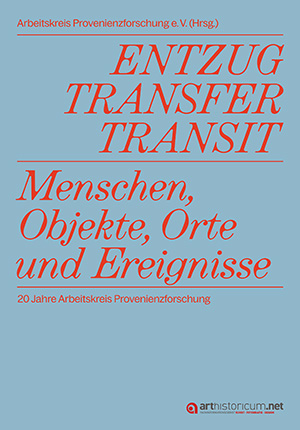Zitationsvorschlag
Lizenz (Kapitel)

Dieses Werk steht unter der Lizenz Creative Commons Namensnennung 4.0 International.
Identifier (Buch)
Veröffentlicht
Provenienzforschung im Kunsthandel: Bestandsaufnahme, Chancen, Desiderate
Provenance research in the art trade: inventory, opportunities, desiderata
Countless artworks suspected of having been seized by the National Socialists due to persecution are still held undetected in private hands. Such cases are typically discovered during preparations for a sale. The art trade can thus play an important role in provenance research. Based on personal experience of the authors, the article provides insights into current provenance research in an auction house and shows the role that the art market plays in proactively applying the Washington Principles. It will be demonstrated how the legal duty for provenance research as established by the German Law for the Protection of Cultural Property (KGSG) can lead to a practice which regularly realises »fair and just solutions«.
Given examples without claim to general applicability show the processes of »initial check« and »indepth research« in the auction trade. A particularity in the skills profile of provenance researchers working in this field is regular research to find lawful heirs, which is often necessary as a first step before mediating and supporting »fair and just solutions«. As a commission agent, the auctioneer will ultimately as an intermediary between the heirs of the injured party and a lawful, goodfaith owner who usually has no connection whatso ever to the former Nazi profiteer. This private owner is essentially not bound by the Washington Principles, but can return an unsaleable work to tradable status through applying them voluntarily. The negotiated »fair and just solution« is typically an auction sale with a sharing of the proceeds, or a repurchase of the work by the heirs of the original owner outside the auction. Lastly, the article will present a case study showing how qualified provenance research can not only be necessary in the art trade but can also bring benefits for all involved.







